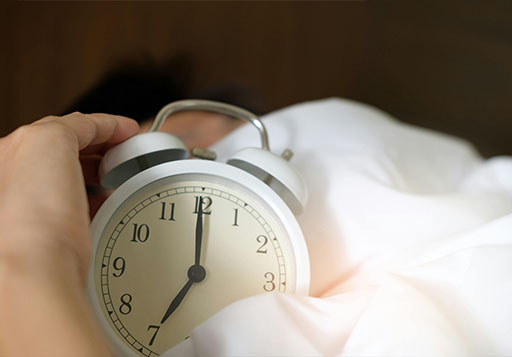Why do we need to sleep?

Author: Jonathan Warren

We spend almost a third of our lives tucked up in bed, but why do we need to sleep? Put simply, humans require sleep in order to survive – snoozing is just as vital as food and water!
Here, we take a look at why sleep is so important for humans in order to function mentally, physically and emotionally.
What is sleep?
Sleep is a period of daily rest our body requires in order to function properly. During sleep, our mental and physical functions are reduced so our minds and bodies can recharge, stay healthy and remain alert in waking hours.
By contrast, if we fail to get enough sleep, our brains will struggle to work properly. You’ll most likely feel sluggish, struggle to concentrate and crave a few sweet treats. We’ve all been there after a few too many the night before!
The science behind needing sleep
Sleeping is so much more than going to bed when we feel tired. In fact, the process of sleep is a vital human life function centred on health restoration. A healthy night’s rest is what our bodies need in order to be strong, happy, alert and motivated. Here are some of the most important reasons why humans need sleep.
Physical restoration and healing
Your body is one big living, breathing muscle and as such needs to restore itself with a bit of rest and relaxation every night. Muscles, cells and tissues repair as we sleep, helping us to wake up feeling refreshed and renewed the next day. This is why when we are sick or injured, our bodies often require us to sleep for extended periods of time to undergo a longer process of healing, restoration and regrowth. If we don’t get enough sleep however, it’s more likely that cold will stick around or that sprained ankle will take an extra week or two to heal.
Memory and cognitive functioning
To keep your brain firing on all cylinders, it’s imperative you get enough sleep. During the night, our brains perform vital work with its in-built waste clearing process (the glymphatic system). This rids our central nervous systems of any nasty waste built up during the day, and allows our brains and bodies to reorganise important neurons and cells come morning time.
A key element of this involves our memory and cognitive function. While we snooze, our clever brains get to work wiping away useless memories and converting important memories and new learnings into permanent ones. By decluttering our nervous systems through restorative sleep, we are then more prepared to learn new things, improve our memories, strengthen our problem-solving and decision making skills, and better our ability to concentrate.
Impact on mental health
Sleep is just as important for your emotional health as it is your physical health. A solid night of slumber allows our brains to strengthen areas that regulate emotion (such as the amygdala), helping us to retain healthy brain function and emotional stability in our waking hours.
With enough rest, our brains can respond to emotional stimuli in controlled and rational ways. For example, if faced with a stressful situation after a restful night’s sleep, your brain is less likely to make you overreact to the issue and become stressed. Instead, your brain will help you to rationalise the situation, take a breath and adapt to the situation with minimal anxiety.
Weight management
Believe it or not, a lack of sleep can really play havoc with your metabolism. If your circadian rhythm isn’t operating correctly, the way your body processes and stores fats becomes disrupted, leading to weight gain and obesity if not addressed. This is because a lack of sleep can decrease your body’s ability to respond to insulin, affect your willingness to be active and cause you to consume more unhealthy food than you usually would.
Impact on heart health
Many experts believe there is a direct correlation between sleep and heart health. This is because continued poor sleep hygiene can lead to symptoms such as high blood pressure, weight gain, increased inflammation and elevated cortisol levels – all of which present risk factors that can induce heart disease.
How much sleep do we need?
How much sleep an individual needs depends on a whole host of factors. This can include genetics, health conditions or even your line of work. For example, if you are unwell or have a demanding job that requires lots of physical effort, you may need more sleep in order to fully recover, recuperate and feel refreshed the next day.
The most widely accepted factor for determining the correct average amount of sleep however is age. In the table below, we have outlined different age groups throughout life and the recommended hours of sleep per day associated with them.
|
Age Group |
Age Range |
Recommended Hours of Sleep per Day |
|
Baby |
3-12 months |
12-16 hours |
|
Toddler |
1-2 years |
11-14 hours |
|
Preschool |
3-5 years |
10-13 hours |
|
Child |
6-12 years |
9-12 hours |
|
Teenager |
13-18 years |
8-10 hours |
|
Adult |
18 years+ |
7 hours plus |
Searching for more ways to boost your sleep quality?
At Time4Sleep we are all about enhancing your sleep quality. Whether you’re looking to explore what dreams actually mean or perhaps you are debating whether to sleep with a pillow between your legs or trying to understand what you should drink before bed, our Time4Sleep blog has plenty of hints and tips on how you can get the most restorative sleep possible.



